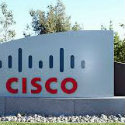Cisco's 'Spin In' Innovation Team Spins Out
The foursome known as 'MPLS' led SDN innovation for Cisco, and are leaving out of a 'disconnect' with their roles in a recent company reorganization.

The team behind the "spin in" strategy that led to Cisco's SDN push and other innovations has left the company, out of a "disconnect" with their roles in recent company reorganization, the company said.
Mario Mazzola, Prem Jain, Luca Cafiero, and Soni Jiandani -- nicknamed "MPLS" after their initials, and in a nod to the telco networking technology -- are to step down on June 17, according to a message from CEO Chuck Robbins posted to the Cisco intranet Monday.
The decision stems from a recent reorganization putting Cisco's David Goeckeler in charge of the newly created Networking & Security Business Group. With the MPLS departure, that unit will now include the Insieme group, which oversees Cisco's emerging data center products and services, including SDN, analytics and orchestration. The organization combines routing, switching and security. The MPLS team had formerly reported directly to former CEO John Chambers; under the new plan, they'd stay on with Cisco in an advisory capacity.
Chambers, who headed up Cisco for 20 years, was replaced by Robbins as CEO last year but has stayed on as executive chairman.
Robbins said of the MPLS team: "Their decision is based on a disconnect regarding roles, responsibilities and charter that came to light immediately after the [Networking & Security Business Group] announcement. We are very thankful to each of them for their significant contributions to Cisco, which includes building a world-class technical team that will continue to innovate and deliver amazing products."
The MPLS team came to Cisco with the vendor's 1993 acquisition of Crescendo. While at Cisco, they led teams driving very successful innovations, including the Nexus 9000 switch and accompanying SDN strategy, as well as the Unified Computing System (UCS) line of standardized data center servers.
One particular innovation enriched both the MPLS team personally and Cisco -- the "spin in" strategy, whereby Cisco was the sole investor in an otherwise independent startup, which Cisco later acquired and brought back into the company. The strategy allowed Cisco to tap into startup agility. And it brought great wealth to the MPLS team -- $2.38 billion to Mazzola, Jain and Cafiero, according to one report. The fourth member of the team, Jiandani, is an engineer who handles marketing.
The latest spin-in, Insieme, was acquired by Cisco for $863 million in 2013. Insieme is responsible for Cisco's SDN strategy. (See Cisco's ACI Gets Physical With SDN.)
But the spin-in model wasn't all roses. It generated ill will among Cisco engineers, who saw some of the peers getting compensated vastly more than others for the same work. Jayshree Ullal, a former MPLS colleague at Crescendo and 15-year Cisco veteran, said in 2008: "It's a nightmare when the guy in the next cubicle is a multimillionaire and you aren't, because you weren't chosen" for the spin-in. Ullal is now CEO of Cisco archrival Arista Networks Inc. , which is locked in a web of lawsuits with its former employer. (See Judge Rules in Favor of Cisco Against Arista in ITC Complaint and Cisco Slams Arista With Massive Patent & Copyright Suit.)
Want to know more about SDN? Visit Light Reading's SDN technology content channel.
Spin-ins were favored by Chambers but current CEO Robbins signaled in November that he's not a fan. Robbins likes isolating teams to foster innovation and giving them "big hairy problems to solve," but prefers to do it inside the company. He's not ruling out spin-ins, but prefers to keep things in-house.
Cisco has seen a stream of executive replacements since Robbins took over last year. Pankaj Patel, executive vice president and chief development officer, announced in January he plans to leave in the second half of the year, after 19 years at Cisco. Most recently, he led the company team of 26,000 developers and engineers. (See Cisco EVP Development Patel Says Sayonara, Cisco's Ahuja Quits as Robbins Revamps His Top Team, Cisco Brings in New Blood for Tech Leadership, 2 Cisco Presidents Quit and New Cisco Leadership Favors Diversity.)
Light Reading inducted Patel into its Hall of Fame for his contribution to the global communications industry in May. (See Light Reading Hall of Fame 2016, Cisco's Patel Hails 'Microculture' Successes, and The Life & Times of Pankaj Patel.)
Related posts:
— Mitch Wagner, 
 , Editor, Light Reading Enterprise Cloud.
, Editor, Light Reading Enterprise Cloud.
About the Author(s)
You May Also Like




_International_Software_Products.jpeg?width=300&auto=webp&quality=80&disable=upscale)







